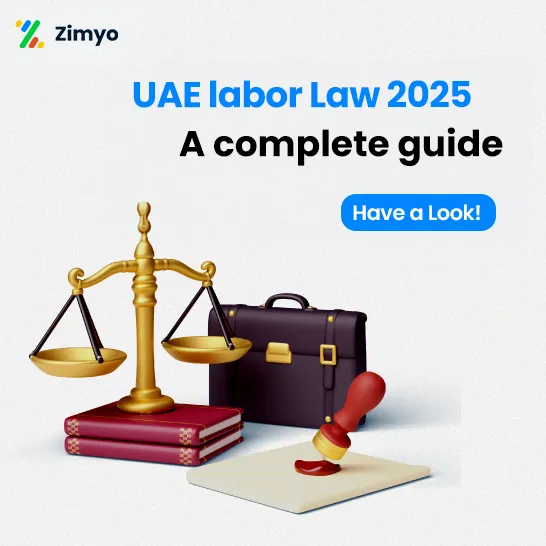It matters for employers expanding in Thailand and employees familiarizing themselves with their rights to know working hours in Thailand. The Labour Protection Act B.E. 2541 (1998) has set rules for the hours employees can work, the extra hours they’re entitled to, how much rest they have and numerous kinds of paid and unpaid leave. Keep reading to find out everything you need to know about the working hours

Overview of Working Hours in Thailand
Standard Legal Working Hours (Section 23)
Flexible arrangements works, especially in tech, hospitality, and remote-based sectors, but they must remain within the law’s time boundaries.
Thailand’s Labour Protection Act, in Section 23, defines the legal working hours as:
- No more than 8 hours every working day and 48 hours in each workweek
- In hazardous situations, you can work 7 hours a day and not more than 42 hours a week
Employees taking on construction, chemical handling, heavy lifting and machine operation have this limit. Working hours have to be clear to staff, whether they are on the traditional 9-5-day schedule or working shifts. Flexible scheduling happens often in tech, hospitality and remote fields, but it should not be outside the specified time in the law.
To track and manage standard working hours efficiently, many businesses in Thailand adopt tools like Zimyo’s Employee Attendance System to ensure compliance and accuracy.
Overtime Rules and Compensation (Section 24)
According to Section 24, an employee can only be asked to work overtime if it is agreed by the employee, apart from emergencies. Anyone working over the regular limit of hours must offer compensation at these rates:
- 1.5x hourly wage for every normal workday
- The employer pays 2× hourly wages on holidays that are part of the 52-week year
- Hourly wage is 3x for employees on public holidays.
Employers must provide a 20-minute break before overtime begins if it exceeds two hours. Any failure to comply with overtime regulations may result in penalties under Thai labor law.
To calculate overtime wages accurately, many employers integrate payroll software that aligns with legal requirements and real-time work data.
It’s worth noting that excessive overtime can unfavorably by labor inspectors. We highly recommend maintaining a proper overtime register for compliance.
Labor inspectors may regard repeated overtime as undesirable. We strongly suggest having a correct record of overtime to follow regulations.
Breaks, Rest Days, and Public Holidays (Section 27–29)
Breaks are an essential part of Thailand’s labor guidelines:
- Section 27 mandates at least a 1-hour break after five continuous working hours.
- Employees are offered to at least 1 weekly rest day, usually Sunday, depending on the nature of the job.
- Under Section 29, all employees must get at least 13 paid public holidays per year. These include:
- Songkran (Thai New Year) – April 13 to 15
- His Majesty the King’s Birthday
- Makha Bucha Day (Buddhist holiday)
If the holiday is on the usual rest day, the employee should get an alternative day off. A number of public sector employers give staff extra days off to observe cultural celebrations.
Click to know more about Thailand’s public holidays.
Annual Leave and Time-Off (Section 30)
After working continuously for 1 year, employees have the right to be entitled to the protections under Section 30, says the law.
- Each year, every employee gets at least 6 days of paid leave.
- Additional days off past 6 days are possible as set out by the company’s policy
- Both the employer and employee can mutually decide to allow unused annual leave to be used in the next calendar year.
Many professional services firms and MNCs are known to supply more opportunities for time off to their staff. People are advised to ask for days off ahead of time and keep records for all their request
Click to know more about Thailand Annual Leave Law.
Military Duty, Religious and Cultural Leave
Thailand’s labor system acknowledges religious obligations and civic duties:
- Military Duty Leave (Section 35): Employees may be granted up to 60 days of paid leave each year for military training or inspection.
- Monkhood Leave: Thai men have long followed the tradition of spending time as monks, usually just once in their lives. Usually, employers will allow you to have up to 120 days of unpaid leave and sometimes this is at least partially compensated, as determined by the company’s rules.
These cultural accommodations reflect Thailand’s respect for religious diversity and moral obligations.
Sick Leave, Training Leave and Special Considerations
Most sick leave is given at a “reasonable” rate, usually 30 days per year with one’s full salary. A medical certificate is needed if absence goes on for more than 3 days.
Employees have the right, from Section 36, to receive training leave for programs relevant to the work they do. This is particularly true in corporate, tech, or education fields, since upskilling is encouraged.
Thailand’s maternity leave is 98 days, including 45 days of paid leave from work and the rest from social security. Fathers may be granted some time off for paternity based on policies of the company.
Understanding Thailand’s Work Culture
Being respectful to everyone, maintaining a chain of command and being in harmony are important in Thai work culture. In Western cultures, being direct is valued, but Thai companies prefer teamwork and reaching agreements through discussion.
While formal labor law governs working hours, unwritten cultural norms also shape the workplace:
- Employees often stay late out of respect, not obligation.
- Seniority influences roles and communication styles.
- Religious holidays are taken seriously and celebrated with reverence.
Understanding these helps employers build stronger, culturally sensitive teams.
Key Takeaways
Category | Detail |
Standard Hours | 8 hrs/day, 48 hrs/week (or 7/42 for hazardous roles) |
Overtime | 1.5x to 3x regular wage, with consent |
Breaks | 1-hour break after 5 hrs work |
Weekly Holidays | Minimum 1 day off per week |
Public Holidays | At least 13 per year with pay |
Annual Leave | 6 paid days after 1 year of service |
Military/Religious Leave | 60 days for military, up to 120 days for monkhood |
Sick Leave | Up to 30 paid days/year |
Training Leave | Allowed for job-related learning |
Conclusion
Knowing about working hours is important for remaining legal and promoting fairness among workers. Following the Labour Protection Act and cultural norms, employers help maintain good relationships and a fair working climate at their company.
Zimyo Time and Attendance Software helps to calculate working hours hassle free!
FAQ's ( Frequently Asked Questions)
What are the legal working hours in Thailand?
The Labour Protection Act caps working hours at 8 per day and 48 per week, or 7/42 for hazardous jobs.
How is overtime paid in Thailand?
Employees receive 1.5× pay for extra hours, and up to 3× pay if the work falls on a public holiday.
Are public holidays mandatory in Thailand?
Yes. A minimum of 13 paid public holidays are mandated annually. If they fall on a rest day, a substitute is provided.
What are the special leaves available in Thailand?
Besides sick and annual leave, Thailand grants leave for military service, Buddhist ordination.































